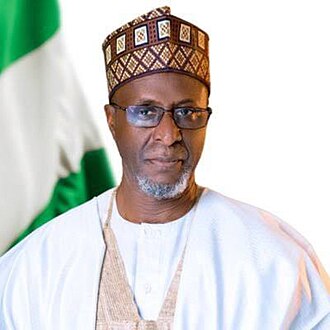The escalating influx of plastic waste into the world’s oceans, estimated at a staggering 14 million tonnes annually, presents a dire threat to Nigeria’s rich biodiversity and delicate marine ecosystems. This alarming statistic underscores the urgent need for comprehensive and collaborative action to mitigate the devastating impact of plastic pollution on coastal communities and marine life. Recognizing the gravity of this global crisis, the Nigerian Federal Government, through the Ministry of Environment and in partnership with international organizations, has embarked on a proactive approach to combat plastic waste and promote sustainable waste management practices. A key element of this strategy is the implementation of the Extended Producer Responsibility (EPR) program, which aims to hold producers accountable for the entire lifecycle of their products, including post-consumer waste management.
The Extended Producer Responsibility (EPR) program represents a paradigm shift in waste management, transferring the onus of post-consumer waste from municipalities and taxpayers to the producers of goods. This approach incentivizes producers to design products with recyclability and end-of-life management in mind, thereby reducing the burden on public waste management systems and promoting a circular economy. EPR programs typically involve producers taking responsibility for the collection, sorting, recycling, and disposal of their products after consumer use. This can be achieved through various mechanisms, such as deposit-refund systems, take-back programs, or by financing and supporting independent recycling schemes. The underlying principle of EPR is to internalize the environmental costs associated with product disposal, encouraging producers to adopt more sustainable practices throughout the product lifecycle.
Nigeria, with its extensive 850-kilometer Atlantic coastline, is particularly vulnerable to the detrimental effects of marine plastic pollution. The influx of plastic debris not only harms marine life through entanglement and ingestion but also disrupts crucial marine ecosystems, impacting coastal communities that rely on these resources for their livelihoods. The aesthetic degradation of coastlines due to plastic litter poses a significant threat to tourism and recreation, further exacerbating the economic impact. The PROTEGO project, a collaborative initiative between Nigeria and Ghana, aims to address this challenge by reducing plastic waste leakage into the Gulf of Guinea and fostering circular economy strategies. This project underlines the recognition that while the plastic pollution crisis is global, its solutions necessitate local action and collaboration.
The training workshop organized by the National Environmental Standards and Regulations Enforcement Agency (NESREA) in collaboration with the PROTEGO project signifies a crucial step towards building capacity and fostering stakeholder engagement in the implementation of the EPR program. The workshop aimed to equip stakeholders with the knowledge and tools necessary to design, refine, and effectively implement EPR programs. By bringing together representatives from various sectors, including government agencies, producers, importers, and brand owners, the workshop facilitated a shared understanding of the EPR framework and fostered dialogue on its practical application. This collaborative approach is essential for ensuring the successful implementation and long-term sustainability of the EPR program.
Nigeria’s commitment to tackling plastic pollution is further demonstrated by the upcoming implementation of the National Guideline on EPR for the packaging sector in 2025, along with the draft National Environmental (Plastic Waste Control) Regulations. These regulations will mandate EPR for all producers, importers, and brand owners in the packaging sector, focusing on problematic materials such as single-use plastics. This proactive approach reflects the government’s recognition of the urgent need to address plastic waste at its source and promote sustainable packaging solutions. By holding producers accountable for the end-of-life management of their packaging, these regulations aim to significantly reduce the volume of plastic waste entering the environment.
The EPR program is not merely an environmental policy but a fundamental shift in how we approach production and consumption. It represents a move towards a circular economy where resources are used more efficiently, waste is minimized, and environmental responsibility is shared throughout the product lifecycle. By internalizing the environmental costs associated with product disposal, the EPR program incentivizes producers to design more sustainable products and packaging, promoting innovation and driving the transition towards a more circular and sustainable economy. The collaborative efforts between government agencies, international organizations, and stakeholders underscore the collective commitment to addressing the global challenge of plastic pollution and protecting Nigeria’s invaluable marine ecosystems.














